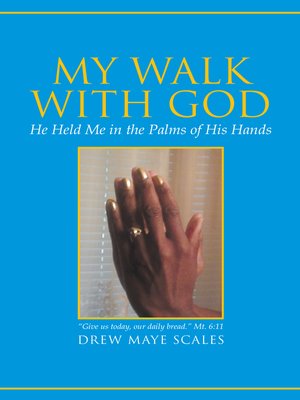
Sign up to save your library
With an OverDrive account, you can save your favorite libraries for at-a-glance information about availability. Find out more about OverDrive accounts.
Find this title in Libby, the library reading app by OverDrive.



Search for a digital library with this title
Title found at these libraries:
| Library Name | Distance |
|---|---|
| Loading... |
In her autobiography, My Walk With God, the author, D. M. Scales, talks about many things. Foremost, she talks about her life and growing up in the South during the oppressive sixties era.Basically, this was during the civil rights movement, which was a product of inequality along with Jim Crow and Brown v. Board of Education. Importantly, this was when many blacks wanted to obtain equality. Here, this writer talks about how being black and poverty stricken during the dark sixties, posed serious problems for her as a youngster. Typically, educated as well as uneducated black Americans were subservient to Jim Crow laws. In contrast, in our society today, blacks have now become better educated, but this writer alludes not much has changed. The expression not much has changed is further exemplified for the reader throughout this autobiography. Drew exemplifies this when she says oppression and discrimination both existed during the sixties, and in the Jim Crow era and yet cohabitates in our society today.







